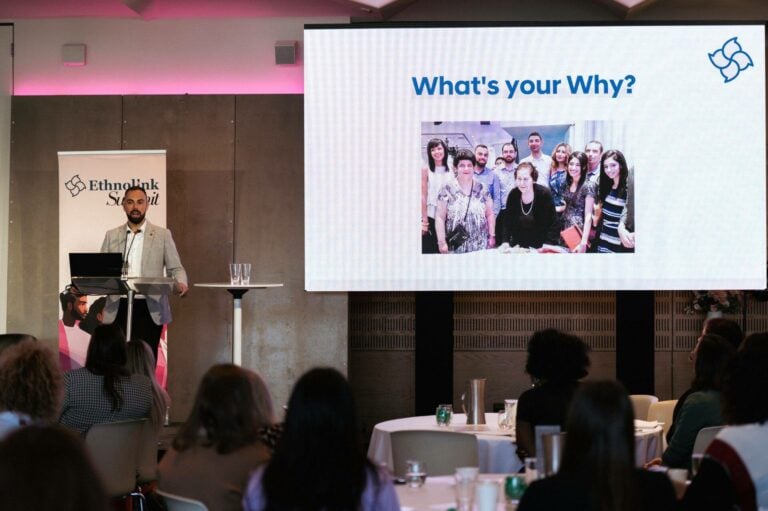In a collaborative effort, RMIT University and the Victorian Government are offering tuition-free scholarships for students aspiring to pursue a career in Greek interpreting.
As part of the 2024 RMIT Interpreter Scholarship Program, this initiative aims to increase the number of proficient Greek interpreters in Victoria, with the overarching goal of improving language services and ensuring greater accessibility for the Greek community within Victoria.
Costa Vasili, CEO of Ethnolink, a Melbourne-based multicultural communications and translation agency and an Australian-born Greek Cypriot, emphasises the importance of this scholarship program.
“It is critical for the high-quality provision of interpreting for our Greek community in Victoria as we know there’s an ageing population spurred by waves of migrants,” says Vasili to Neos Kosmos.
He highlights that “what’s happening in the community now is that many of our great community who don’t have high level of proficiency in English are needing to interact with Health services and due to that, there’s a higher demand for Greek interpreting.”
“We urgently need new talent to support our Greek community, especially in health settings. This scholarship offers a golden opportunity for those passionate about community service to truly make a difference. I strongly encourage interested individuals to apply and seize this chance for a fulfilling career change.”
The eligible candidates will benefit from scholarships that cover both program and student fees, presenting a remarkable opportunity for those interested in pursuing the Advanced Diploma of Interpreting at RMIT University in 2024.
This program is especially tailored for bilingual individuals eager to acquire or enhance their professional interpreting skills.
The Greek Cypriot entrepreneur, also talks about the diverse career opportunities that studying Greek interpreting in Australia can unlock, including community interpreting, involving work in health settings like hospitals and legal contexts.
He also makes clear, that aspiring interpreters may progress to become conference interpreters, potentially working at a global level, such as at the United Nations, or may find roles as translators, translating written content between English and Greek, including government and health communications, legal documents, and engaging projects like game localization, video subtitling, and movie translation.
To qualify for this scholarship, applicants need to be residents of Victoria, proficient in both Greek and English, and either Australian citizens or possess permanent residency.

The application deadline is January 31, 2024, or until all scholarship positions are occupied. Allocation will occur on a first-come, first-served basis.
Completing the course successfully will allow scholars to take the National Accreditation Authority for Translators and Interpreters (NAATI) examination, opening the pathway to becoming a certified Greek interpreter, an accreditation that is becoming progressively crucial in Victoria, particularly for those serving the Greek community across various sectors.
Vasili highlights the increasing demand for linguistic services in health and legal domains, saying that especially within the health sector, there are “some sub-sectors” such as disability services, where individuals require assistance in navigating the disability system in Australia, which can be “quite challenging” due to the specialized language involved.
He also brings up the growing need for expertise in areas like dementia, a prevalent concern among older members of the Greek population, along with the expanding need in the field of mental health.
The CEO of Ethnolink underscores the significance of the partnership between the Victorian Government and RMIT University.
“This year it’s been fantastic recognition of the need within the community that Greek has been made available to study at the Advanced diploma level, which is to my knowledge, unprecedented, and it just signifies the government’s commitment to the Greek community.”
“I think the strong partnership between the Victorian Government and RMIT University in particular to make these training programs happen, is fundamental to the success of this program and this scholarship.”









